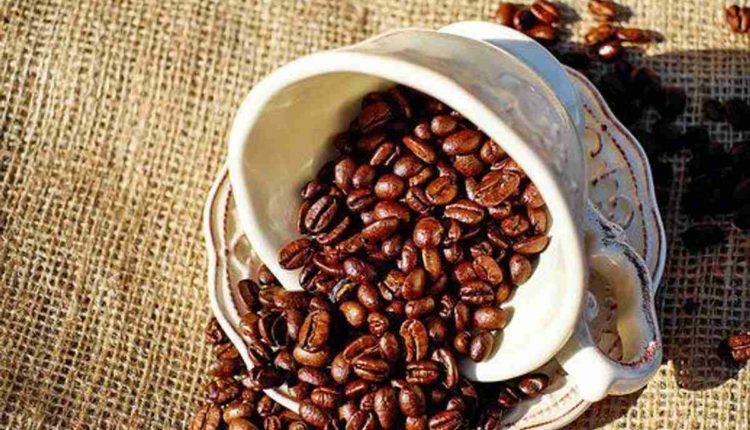Often we hear that certain food is bad for you as well as that a certain food is good for an individual. A lot of times it will be the same foods. Coffee isn’t one of those food items that suffer from a twin identity but gets generally negative press. Find the Best Guide to Cold Brew Coffee Makers.
Maybe you need to add to the confusion by looking at a few of the health benefits. The key as to if or not any food is very good or bad is typically small amounts. If you consume too much of something it will probably have health threats associated with it.
For the sake of this post, we will define the “moderate use” of coffee to be three to five regular-size coffee mugs. Not the humongous plastic mugs today that some of us have that may hold half of a weed of coffee but your typical everyday coffee cup. Several health benefits can be gained simply by drinking coffee in small amounts and we will look at them today.
A lot of scientific studies over the last ten years have shown that caffeine includes a positive impact on our cognitive operation. Drinking coffee throughout the day can help boost alertness and combat fatigue, increase the ability and also the length of concentration, boost emotional performance, increase production, and also improve mood.
Monotonous routines such as driving long miles can be hard to remain alert. The level of caffeine helps reduce the risk of “zoning out”. Now just so that you don’t think that you should drink coffee all day every day, there is a correlation between your consumption of caffeine and lessened reaction times. Many chalks this up to the increased concentration producing processing information faster that has a slower time reacting to help anything that is not being centered on.
A long-time myth in relation to coffee and other caffeinated liquids is that they contribute to dehydration. This specific rumor started by knowing that caffeine can have a gentle diuretic effect. This has an effect on is less on those who consume caffeinated beverages on a regular basis and the diuretic effect is very mild in the first place.
When it comes to fluid intake java and pure water are really similar. Recent studies are demonstrating that there is no reason to think that coffee or additional caffeinated beverages lead to a great imbalance between body smoothness and electrolytes or mineral deposits.
The studies that appeared to show the most drastic diuretic effect were somewhat skewed because they were only a few hrs in length. The studies which collected data over the course of a complete day showed a much-reduced effect. So the rumor that the coffee doesn’t count communicate water intake is just that, the rumor!
Parkinson’s disease, the neurological disease seems to have reduced cases of instances the who drink caffeinated drinks regularly. A study that survived almost 3 decades showed that men who drink four cups of coffee a day (or more) were 5 times more unlikely to develop Parkinson’s disease.
Several more than 10 published research were analyzed and the evaluation showed that coffee users were 31% less likely to formulate Parkinson’s disease. The reasons for the decreased risk are not realized at this time but studies are generally underway to try to find the basis for this correlation.
The health of your own personal gall bladder and hard-working liver may be helped by sipping coffee as well. Studies show how caffeine can cause the gall bladder to contract appropriately which reduces the enhancement of gall stones. Apparently, the formation of gall bladder disease can be diminished by as much as 40% by drinking 3 cups of coffee beans a day.
The regular consumption of coffee beans also seems to show fewer instances of cirrhosis in the liver. This extends possibly into the alcoholic cirrhosis on the liver. No wonder SOCIAL MEDIA PACKAGE serves so much coffee!
Studies seem to suggest that sipping coffee can lower the unwelcome possibility of Type II diabetes. While the link between drinking coffee beans and reduced risk of Variety II diabetes has been shown via many extensive studies, the actual role coffee plays within this is unknown at this time there are numerous studies underway to try to conclude the specific benefits of coffee.
Obviously, we could not do a tale about the disease without mentioning the “big” one, malignancy. While some studies have claimed that coffee may be a carcinogen the reason behind this is because of insufficient information to rule it out. Simply because we can not “rule out” that something causes malignancy is no reason to imagine it “might”.
A myriad of research shows that drinking coffee will not increase your chances of developing malignancy and a lot of them show which coffee can decrease these types of chances. In fact, many studies appear to show that over a 3rd of all cancers can be avoidable with changes to our diet as well as lifestyles.
Earlier we talked about the benefits to liver wellness, well this extends to espresso possibly being preventive against the development of liver cancer. Spanning a dozen studies show that standard consumers of coffee can be more than 25% less likely to formulate bowel cancer. Several research shows that women who consume coffee beans regularly are less likely to produce ovarian or endometrial cancers.
Read also: The Best Way To Remove A Mole Correctly, Quickly And With Little Or No Problems


